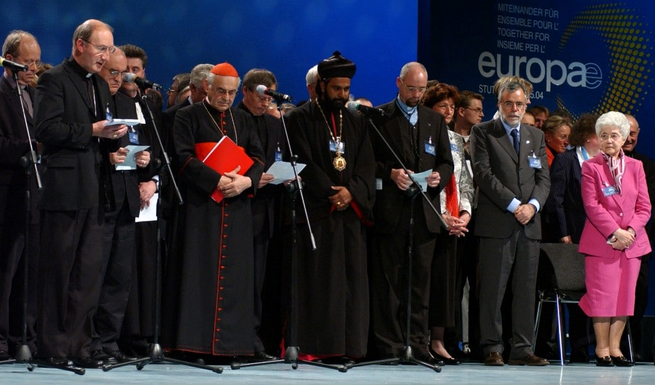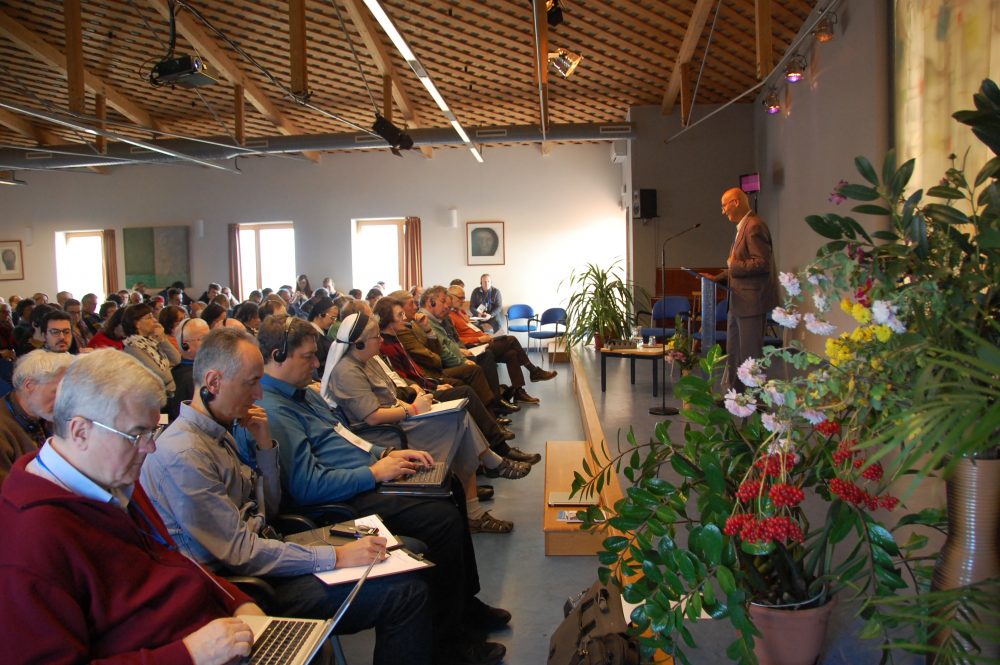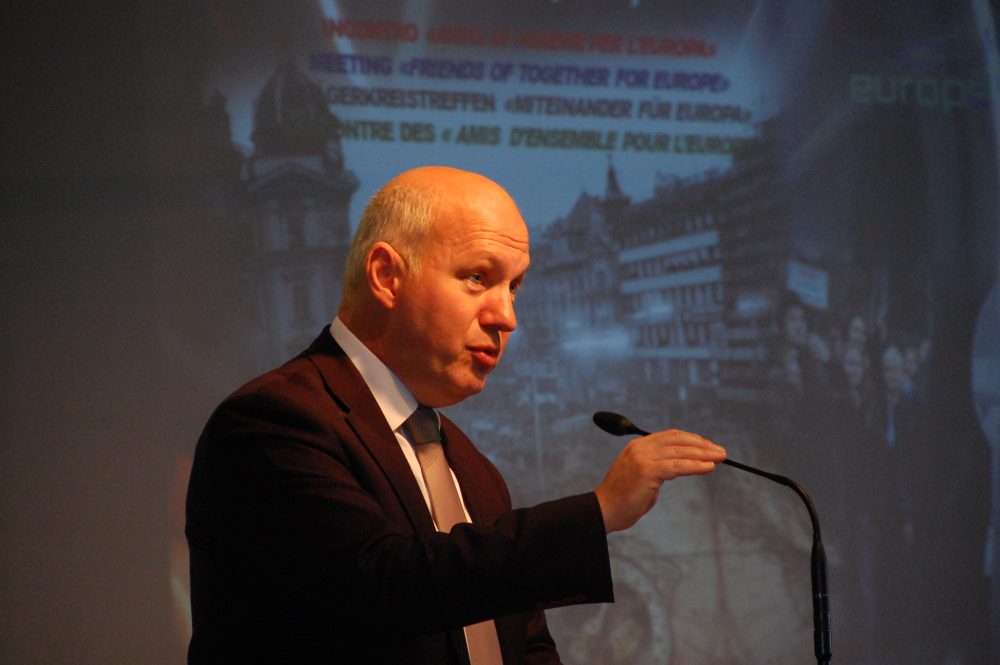
Beatriz Lauenroth, a journalist, is one of the promoters of Together for Europe, the free convergence of Christian communities and movements. The over 300 different Churches act on the network with shared objectives for the Old Continent, promoting a culture of reciprocity through which individuals and peoples can welcome one another, and get to know and support each other mutually. Beatriz is a true citizen of Europe: born in Germany, she spent the last 10 years in Holland and the prior 20 in Russia: “There, I lost my heart. I fell in love with that country and the relationships I had established with the people.”
We asked her to explain how “Together for Europe” was born. “I think it all started on 30 May 1998 ˗ she recounted ˗ when John Paul II invited all the movements and the new ecclesial communities to St. Peter’s Square. There, Chiara Lubich, founder of the Focolare Movement, felt the urge to commit herself to the Pope in promoting unity among the Catholic movements. Then there was a step forward in 1999, precisely on 31 October in Augsburg, Germany, with the signing of the Joint declaration of the Doctrine of Justification by the World Lutheran Federation and the Roman Catholic Church.”
 It was a historic event for the ecumenical path: “That same evening, many had gathered not far away in Ottmaring, seat of the ecumenical town of the Focolare. Chiara Lubich was there with other representatives of the movements, like Andrea Riccardi of Sant’Egidio, and also other Protestants like Helmut Nicklas, head of the YMCA of Munich (Ecumenical Association of Christian Youths). They said: let’s join up, get to know one another, and start working together!”
It was a historic event for the ecumenical path: “That same evening, many had gathered not far away in Ottmaring, seat of the ecumenical town of the Focolare. Chiara Lubich was there with other representatives of the movements, like Andrea Riccardi of Sant’Egidio, and also other Protestants like Helmut Nicklas, head of the YMCA of Munich (Ecumenical Association of Christian Youths). They said: let’s join up, get to know one another, and start working together!”
That first tract of the journey lead subsequently to the big “Together for Europe” events of 2004 and 2007, held in Stuttgart, and later in 2012, contemporaneously in 152 cities with the fulcrum in Brussels, and in 2016, in a main square of Munich, Germany, with 36 round tables and forums to share experiences, good practices and perspectives regarding Europe. In November 2017, the meeting of the friends of “Together for Europe” reached Vienna, the city bridge between East and West. On those days, this free forum of Christian movements and communities got together in Prague, on the occasion of the anniversary of the start of the so-called Velvet Revolution, the nonviolent revolution which in 1989, toppled the Czech communist regime:
 “It is a coincidence that strongly challenges the friends of ‘Together for Europe,’ to renew our common commitment of bringing the spirit of Christian humanism to post-century culture, thus offering our contribution in giving life and form to a more united Europe.” Beyond all the fears and prejudices, we wish to testify that the journey towards a Europe which is “home to the nations and family of peoples” is not a utopia.
“It is a coincidence that strongly challenges the friends of ‘Together for Europe,’ to renew our common commitment of bringing the spirit of Christian humanism to post-century culture, thus offering our contribution in giving life and form to a more united Europe.” Beyond all the fears and prejudices, we wish to testify that the journey towards a Europe which is “home to the nations and family of peoples” is not a utopia.
The Prague convention opened with the speech of the Czech theologian-philosopher, Tomáš Halík (Templeton-Prize 2014), a personal friend of Vaclav Havel, the first president of the newly constituted Czech Republic from 1993 to 2003, and then of Jaroslav Šebek, a member of the Historical Institute of the Science Academy of the Czech Republic, and of Pavel Fischer, Czech senator. The directors and representatives of the various Movements,
 Communities and Associations intervened to recall together another Europe, that of the big hopes and promises that arise from the rich heritage of an ethnic, social and cultural multiplicity, and that tends toward communion and dialogue. The Prague event has thus become an important step in the history of Together for Europe that continues to commit itself to a more united and fraternal Europe. “Often we mention ˗ Beatriz concluded ˗ the Founding Fathers of Europe, Schuman, De Gasperi and Adenauer. The youths say to us: let us work with you, so that the Europe of the fathers can also become the Europe of the sons and daughters.”
Communities and Associations intervened to recall together another Europe, that of the big hopes and promises that arise from the rich heritage of an ethnic, social and cultural multiplicity, and that tends toward communion and dialogue. The Prague event has thus become an important step in the history of Together for Europe that continues to commit itself to a more united and fraternal Europe. “Often we mention ˗ Beatriz concluded ˗ the Founding Fathers of Europe, Schuman, De Gasperi and Adenauer. The youths say to us: let us work with you, so that the Europe of the fathers can also become the Europe of the sons and daughters.”

